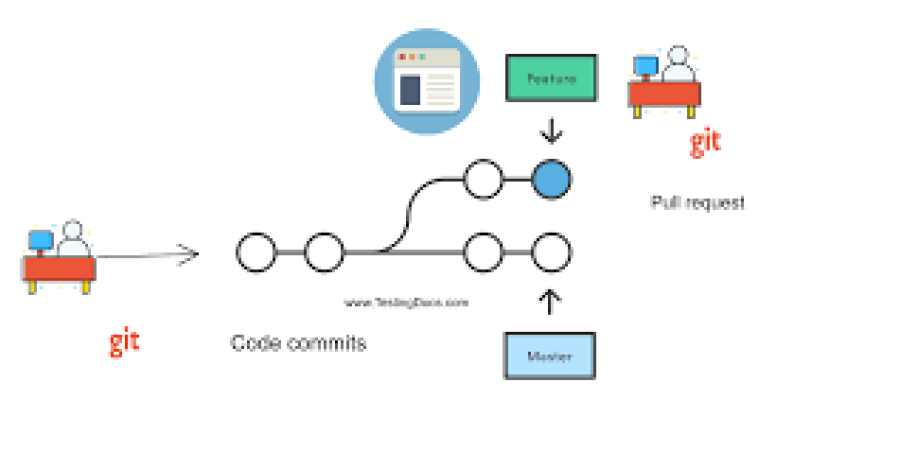The Role of Feng Shui in Modern Interiors
Feng Shui, an ancient Chinese art of placement and energy flow, has become a valuable design principle in today’s modern interiors. While rooted in tradition, Feng Shui remains highly relevant for contemporary living spaces — offering a unique blend of aesthetics, functionality, and emotional balance.
For freelance interior designers, decorators, or consultants, understanding the core principles of Feng Shui adds depth and cultural sensitivity to your projects. Whether designing a compact urban apartment, a luxury villa, or a commercial workspace, incorporating Feng Shui principles can help improve energy, well-being, and client satisfaction. In this article, we’ll explore how Feng Shui fits into modern interior design and how you, as a freelancer, can apply its principles effectively to elevate your design practice.
Long Description: The Role of Feng Shui in Modern Interiors
Feng Shui translates to “wind and water,” and it focuses on harmonizing human life with the surrounding environment. In modern interior design, Feng Shui principles are used to enhance positive energy flow (Chi), improve space utilization, and create environments that support health, wealth, and happiness.
Here’s a detailed look at how Feng Shui complements modern interiors and how you can integrate it into your freelance interior design projects.
1. What Is Feng Shui in Interior Design?
Feng Shui is based on the idea that spatial arrangement and orientation affect energy flow. When applied to interior design, it includes:
Strategic furniture placement
Use of natural elements like wood, metal, and water
Thoughtful room layouts and entryway planning
Incorporating light, air, and sound mindfully
Eliminating clutter to free up blocked energy
The goal is to promote harmony between the individual and their space.
2. Why Feng Shui Is Relevant for Modern Interiors
Despite its ancient origins, Feng Shui has a strong place in modern design due to several reasons:
Focus on wellness: It supports mental health, balance, and peace.
Sustainability: It encourages natural light, air flow, and eco-conscious material use.
Functionality: Feng Shui helps in creating purposeful layouts.
Emotional resonance: It connects individuals emotionally with their environments.
Clients today increasingly seek spaces that are more than just beautiful — they want energy-conscious, calming environments, especially in homes and workspaces.
3. The Five Elements of Feng Shui and Their Application
Feng Shui is built on five elements — each associated with specific colors, shapes, materials, and emotional states.
1. Wood
Represents growth, creativity, and vitality
Use in: Indoor plants, wooden furniture, green tones
Rooms: Living rooms, offices, creative studios
2. Fire
Represents passion, transformation, and energy
Use in: Candles, lighting fixtures, red tones, triangular shapes
Rooms: Dining rooms, entertainment areas
3. Earth
Represents stability, nourishment, and grounding
Use in: Ceramics, terracotta tones, square shapes
Rooms: Bedrooms, meditation rooms
4. Metal
Represents clarity, precision, and efficiency
Use in: Metal frames, silver accents, round shapes
Rooms: Offices, study areas
5. Water
Represents wisdom, flow, and tranquility
Use in: Mirrors, glass, blue tones, fountains
Rooms: Bathrooms, entryways
Balancing these elements helps create harmonious interiors tailored to function and energy.
4. Feng Shui and Room Layout: Key Zones to Focus On
Modern interiors can benefit from Feng Shui-informed layouts that encourage energy flow and comfort.
Entrance / Foyer
This is the "mouth of Chi"
Keep it clean, well-lit, and clutter-free
Use mirrors carefully (avoid facing the door directly)
Living Room
Arrange seating to encourage conversation and inclusiveness
Avoid having your back to the entrance
Add balanced elements (plants, lighting, water features)
Bedroom
Position the bed diagonally from the door (command position)
Avoid mirrors facing the bed
Use calming colors and minimize electronic devices
Kitchen
Stove should not be directly opposite the sink (fire vs. water clash)
Keep countertops clean and organized
Use warm, inviting colors for nourishment
Workspace / Home Office
Place desk in command position (facing the room with support behind)
Declutter and minimize distractions
Add a plant or metal element for focus
5. Decluttering and Minimalism in Feng Shui
Clutter blocks energy flow. In modern interiors, minimalism already overlaps with this Feng Shui principle.
Tips for applying this principle:
Use closed storage to conceal items
Leave walking paths open and unobstructed
Limit decor items to meaningful, intentional pieces
Avoid placing heavy furniture near entry points
As a freelancer, you can offer “Feng Shui decluttering sessions” or space audits as a value-added service.
6. Feng Shui Color Psychology
Colors play a central role in Feng Shui. Choosing the right color palette can support the intended energy of the room.
Color Element Emotion Ideal For
Green Wood Growth, renewal Bedrooms, creative spaces
Red Fire Passion, energy Dining rooms, accents
Yellow Earth Warmth, stability Kitchens, living areas
White/Gray Metal Clarity, elegance Offices, bathrooms
Blue/Black Water Calm, introspection Bathrooms, meditation zones
Use these color insights when designing paint schemes or selecting furnishings.
7. Lighting and Air Flow
Natural elements like sunlight and fresh air are vital in Feng Shui and align perfectly with modern interior goals.
Use layered lighting (ambient, task, and accent)
Maximize window space and avoid blocking natural light
Add air-purifying plants or use diffusers with essential oils
Good air and light flow enhance both energy and aesthetic appeal in any space.
8. Feng Shui in Small and Urban Spaces
Freelancers working with compact apartments or studio homes can still apply Feng Shui principles.
Tips:
Use mirrors to expand space (without reflecting clutter or doors)
Incorporate multi-functional furniture to avoid crowding
Separate zones with rugs, plants, or lighting
Even minimal changes, when intentional, can improve energy and functionality.
9. Commercial Spaces and Client Projects
Modern businesses now look to Feng Shui for better customer experience and employee productivity.
As a freelancer, you can apply Feng Shui in:
Retail stores (enhancing flow and attraction)
Wellness clinics (creating calming reception areas)
Workspaces (supporting focus and harmony)
Hospitality (designing peaceful lobbies or rooms)
Offer Feng Shui consultations as an add-on to interior design packages.
10. How to Communicate Feng Shui Benefits to Clients
Not all clients are familiar with Feng Shui. Educate them using simple, benefit-driven language:
“This layout promotes natural movement and energy.”
“These materials create warmth and stability.”
“Placing your desk this way improves focus and decision-making.”
Support explanations with visuals and testimonials to build trust and understanding.
11. Combining Feng Shui with Contemporary Design Trends
Feng Shui doesn’t mean sacrificing modern style. You can blend it with:
Scandinavian minimalism (wood + neutral palettes)
Japandi style (natural light, symmetry, and space)
Biophilic design (plants and water elements)
Balance is key. The best results come from harmonizing energy principles with aesthetics and practicality.
12. Offering Feng Shui as a Freelance Service
Freelance designers can position themselves uniquely by offering:
Feng Shui space consultations
Virtual room energy audits
Feng Shui mood boards and layout plans
Educational content or eBooks on home energy design
This diversification helps increase client engagement and project value.
Conclusion: Design with Meaning Using Feng Shui Principles
Feng Shui offers timeless wisdom that seamlessly integrates with modern interior design. For freelance professionals, it presents a powerful way to design spaces that not only look good but also feel balanced and alive.
By understanding elements, layout strategies, and the emotional impact of design, you can deliver personalized solutions that connect deeply with your clients’ goals and lifestyles. Whether working on residential, commercial, or hybrid spaces, integrating Feng Shui into your freelance practice enhances creativity, credibility, and client satisfaction.
FreelancerBridge empowers interior design freelancers with tools and insights that combine creativity with strategy — helping you grow your business while creating meaningful spaces.


 by Emily
by Emily




